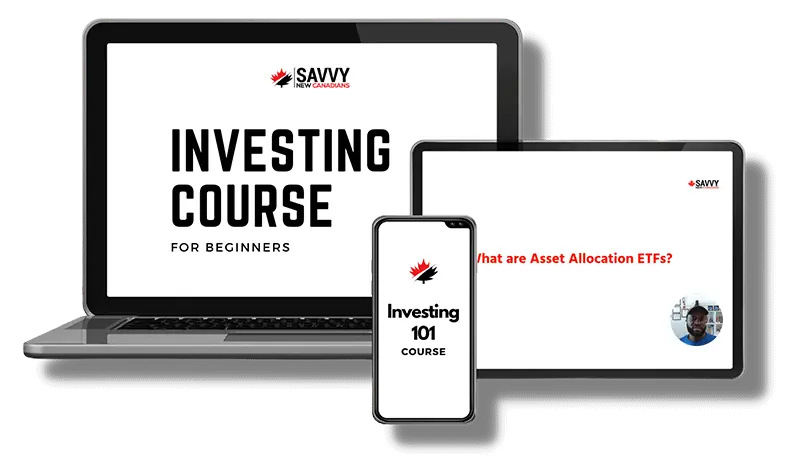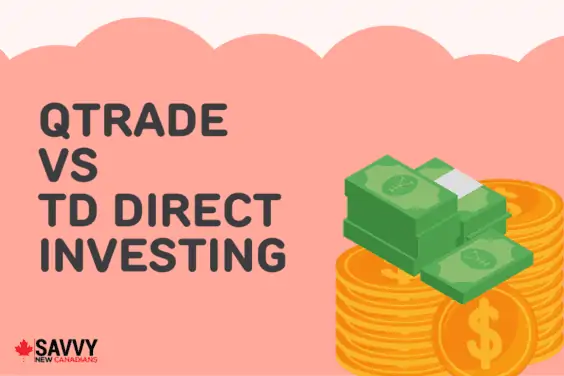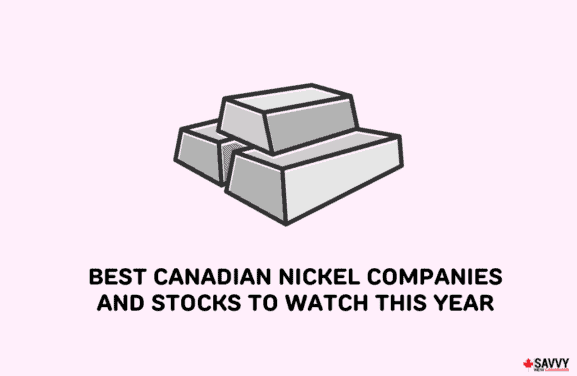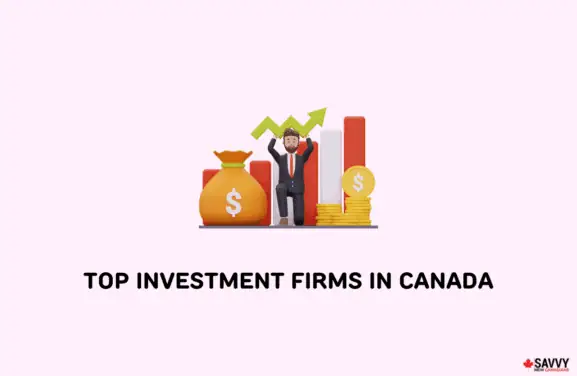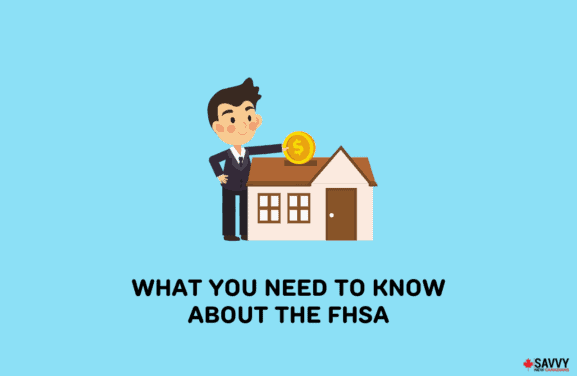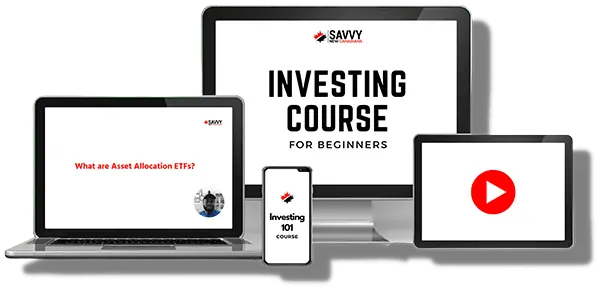This article has been sponsored by Fidelity Investments Canada ULC.
For millions of Canadians, there are many reasons to view saving for a home as an uphill battle. Not only are real estate prices high in most Canadian markets, but rising interest rates have made it more challenging to qualify for a mortgage without a significant down payment.
There’s good news for aspiring homeowners in Canada. Earlier this year, the Government of Canada introduced the FHSA or First Home Savings Account. This brand-new registered investment account allows Canadians to begin saving for their first home in a tax-friendly manner.
While it isn’t available at all banks or financial institutions yet, Fidelity Investments Canada is one of the first financial institutions to offer the FHSA to Canadian investors.
What is an FHSA?
The First Home Savings Account program was introduced on April 1, 2023, to make it easier for Canadians to save for their first home. This account is designed to combine the tax-deductible contributions of a Registered Retirement Savings Plan (RRSP) with the tax-free growth of a Tax-Free Savings Account (TFSA).
While the FHSA will likely not provide enough funds to buy your new home outright, it certainly gives you a tax-advantaged head start from a young age. There are many benefits of an FHSA that makes it worthwhile. Withdrawals from the account to purchase a qualified home are tax-free. And if you have yet to use the funds after 15 years of account opening, your FHSA can be transferred to an RRSP or RRIF on a tax-free basis.
The FHSA is now available through Fidelity Investments Canada. Fidelity also has a wide selection of mutual funds, ETFs, and a vast library of investor education.
FHSA Eligibility
Canadians must meet some requirements to be eligible to open an FHSA:
- You must be a resident of Canada.
- You must be at least 18 years of age or the age of majority in your Province.
- You must not be older than 71 on December 31 of the year you open your FHSA.
- You must be a first-time home buyer, meaning you, or your spouse or common-law partner did not own a qualifying home that you lived in as your principal residence at any part of the calendar year before the account is opened or the preceding four calendar years.
The FHSA is intended to assist as many Canadians as possible, which is why the eligibility requirements are pretty straightforward. To learn more, check out Fidelity’s FHSA education centre.
FHSA Contributions and Deductions
As with other registered accounts like the TFSA or RRSP, the FHSA has strict annual and lifetime contribution limits. The annual contribution limit is $8,000, and the lifetime contribution limit is $40,000.
There is also the ability to carry over unused contribution room to future years. For example, if you only contribute $6,000 to your FHSA this year, you can contribute up to $10,000 next year, i.e. $2,000 carried forward plus the $8,000 for next year. Earnings and growth in the FHSA grow tax-free.
You can deduct FHSA contributions from your taxable income, similar to contributions to your RRSP. The actual value of the taxes saved from FHSA contributions will depend on your marginal tax rate. Any contributions made in the first sixty days of the new year are not counted towards the previous year’s contributions like with RRSPs.
Finally, any overcontributions to your FHSA will be taxed for each month that the contributions exceed the limit. The over-contribution penalty amounts to a 1% tax applied to the highest excess amount for each month.
How To Invest in a Fidelity FHSA
Although the FHSA is called a savings account, you can consider investing your account contributions in order to maximize the potential growth of your contributions, especially if you won’t be buying a home for several years.
Here are some of the qualifying investments you can hold in your FHSA.
Exchange-Traded Funds (ETFs)
An exchange-traded fund, or ETF, is an investment product that contains a portfolio of diversified assets, such as stocks and bonds or a mix of both.
ETFs are similar to stocks because they are listed on major stock exchanges, trade throughout the trading day, can provide capital gains, and may even distribute dividends.
Fidelity offers access to various ETFs, including:
- All-in-One ETFs
- Fixed Income ETFs
- Factor ETFs
- Active ETFs
- Crypto ETFs, such as Bitcoin ETF and Ether ETF
An all-in-one ETF offers a diversified portfolio in one fund. Popular examples include:
- Fidelity All-in-One Equity ETF (FEQT)
- Fidelity All-in-One Growth ETF (FGRO)
- Fidelity All-in-One Balanced ETF (FBAL)
- Fidelity All-in-One Conservative ETF (FCNS)
Mutual Funds
Mutual funds are similar to ETFs in that they are both funds that hold an assortment of different assets. Unlike ETFs, mutual funds do not trade on stock exchanges.
Both mutual funds and ETFs may also pay dividends and provide capital gains. Fidelity offers several actively managed mutual fund portfolios.
Stocks
Similar to TFSAs and RRSPs, you can hold individual stocks in your FHSA.
Instead of buying individual stocks, you can consider using an equity ETF or mutual fund to achieve exposure to multiple stocks and try to lower your investment risk through diversification.
Bonds
Canadians can hold various types of individual bonds in their First Home Savings Account, including corporate and government bonds.
Instead of buying individual bonds, you can consider using a bond ETF or mutual fund for simplicity and diversification purposes.
Guaranteed Investment Certificates (GIC)
A GIC is another generally low-risk, fixed-income asset. When you purchase a GIC through a financial institution, you are lending them that money for a set period of time at a fixed interest rate. Generally, the longer the term of your GIC, the higher the interest you receive. Your principal is paid back in full at the end of the term.
If you are locked in with a GIC and want to make a quick withdrawal for your first home purchase, you may be penalized if it’s a non-redeemable GIC.
Withdrawing From Your FHSA
You must meet certain conditions to withdraw from your FHSA.
You must be a resident of Canada from the time of withdrawal until the acquisition of the qualifying home, and a first-time home buyer.
You must also have a written agreement to purchase or build the new home before October 1st of the year following the withdrawal. Finally, you must occupy the new home as a primary place of residence within one year of buying or building it.
If all these conditions are met, you can withdraw your Fidelity FHSA investments. If you have leftover funds in your FHSA after purchasing your home, you can transfer them to an RRSP or RRIF tax-free. Or withdraw the remaining cash and pay taxes on the withdrawal.
FHSA withdrawals for a qualifying home purchase are tax-free, including your initial capital, and the growth and earnings realized in your account. For example, if you invested $40,000 and it is not worth $50,000, you can withdraw the entire $50,000 tax-free.
If after 15 years of account opening or by the time you turn 72, you have yet to use your FHSA funds, you can also transfer them to your RRIF on a tax-free basis. Note that even though the transfer of funds will be tax-free, withholding taxes will apply when you withdraw from your RRIF.
FHSA vs HBP
Previous to the launch of the FHSA, many Canadians used an RRSP for saving and investing and used a Home Buyers’ Plan (HBP) withdrawal to make a down payment on their new home.
The funds you withdraw through the HBP program must be repaid to your RRSP within 15 years. On the other hand, the funds in your FHSA are meant to be used for your new home and do not need to be repaid.
Pros and Cons of The FHSA
One of the pros of using a FHSA is that you can contribute up to $40,000 over a span of 15 years. Growth and earnings in the FHSA are tax-free. On top of that, any contributions to your Fidelity FHSA are tax-deductible for that year.
The FHSA can be used to invest in various assets, including stocks, ETFs, mutual funds, and fixed-income assets. Unlike the HBP, you do not need to repay withdrawals from the funds in your FHSA account once they have been withdrawn.
There are some limitations to the FHSA. First of all, the maximum contribution limit of $40,000 and the limited lifespan of only 15 years might not be enough time to grow your investment to a sizeable amount. Canadian home prices have continued to rise, so that you may need more than the FHSA for an adequate down payment in some areas. You can make the most of the FHSA by combining it with the HBP and a TFSA. If your spouse also qualifies for these accounts, you could potentially come up with a significant down payment.
And of course, the value of your FHSA can drop if the investments held in the account drop due to market fluctuations and other reasons.
Is the FHSA Right For You?
If you are a Canadian in the market for a new home, the FHSA may be a tax-friendly way to save for it. Not only can you get to grow your investments tax-free, but you also get a tax deduction on your income tax return and can make tax-free withdrawals for a qualified home purchase.
With the FHSA, you get access to Fidelity’s family of ETFs and mutual funds and can grow your investments tax-free.
Investing in an FHSA can offer tax savings when you are ready to purchase your new home in Canada.
Fidelity FHSA Contest 2023
Now available through Fidelity, the FHSA offers prospective first-time homebuyers the ability to contribute $40,000 tax-free toward the purchase of a home.
Get a chance to win $8,000 that can be used to max out your Tax-Free First Home Savings Account!* To enter, sign up for our contest between August 1, 2023, at 2:00 p.m. ET, and September 15, 2023, at 5:00 p.m. ET.
*The contest winner will receive a prize of a cheque to be used or invested at their discretion; it is not required to be invested in an FHSA.
Sign up now, and share the contest with friends and family.
NO PURCHASE NECESSARY. The Contest is open to residents of Canada who are of the age of majority. Financial advisors and employees of Fidelity, among others, are excluded from the Contest. Void where prohibited. One prize of $8,000 CAD available. Skill-testing question required. Odds depend on the number of entrants. For full rules and entry details, please see the Official Contest Rules and Regulations.
Commissions, trailing commissions, management fees, brokerage fees and expenses may be associated with investments in mutual funds and ETFs. Please read the mutual fund or ETF’s prospectus, which contains detailed investment information, before investing. Mutual funds and ETFs are not guaranteed. Their values change frequently, and investors may experience a gain or a loss. Past performance may not be repeated.
The management fees directly payable by Fidelity All-in-One ETFs are nil. The ETFs invest in underlying Fidelity ETFs that charge a direct management fee, and as a result, pay an indirect management fee. Based on the management fees and the anticipated weightings of the underlying Fidelity ETFs, it is expected that the effective, indirect management fee for Fidelity All-in-One Conservative ETF will be approximately 0.34%, Fidelity All-in-One Balanced ETF 0.35%, Fidelity All-in-One Growth ETF 0.37%, and Fidelity All-in-One Equity ETF 0.38%. Actual indirect management fees will be reflected in the management expense ratio in addition to applicable taxes, fixed administration fees, trailing commissions, portfolio transaction costs and expenses, as applicable, of each ETF/Fund, posted semi-annually.
Each of the Fidelity All-in-One ETFs has a neutral mix, which includes a small allocation to Fidelity Advantage Bitcoin ETF™ ranging between 1% and 3%. If each portfolio deviates from its neutral mix by greater than 5% between annual rebalances, it will also be rebalanced. Such rebalancing activity may not occur immediately upon crossing that threshold but will occur shortly thereafter.
Fidelity Advantage Bitcoin ETF aims to invest in bitcoin. Fidelity Advantage Bitcoin ETF Fund invests in Fidelity Advantage Bitcoin ETF. These funds do not speculate with regards to short-term changes in bitcoin prices. Given the speculative nature of bitcoin and the volatility of the bitcoin market, there is considerable risk that these funds will not be able to meet their investment objectives. An investment in these funds is not intended as a complete investment program and is appropriate only for investors who have the capacity to absorb a loss of some or all of their investment. An investment in these funds is considered high risk. Fidelity Advantage Bitcoin ETF and Fidelity Advantage Bitcoin ETF Fund are trademarks of Fidelity Investments Canada ULC.
The investment risk level indicated is required to be determined in accordance with the Canadian Securities Administrators standardized risk classification methodology, which is based on the historical volatility of a fund, as measured by the ten-year annualized standard deviation of the returns of a fund or those of a reference index, in the case of a new fund.
A fund’s volatility is determined using a statistical measure called “standard deviation.” Standard deviation is a statistical measure of how much a return varies over an extended period of time. The more variable the returns, the larger the standard deviation. Investors may examine historical standard deviation in conjunction with historical returns to decide whether an investment’s volatility would have been acceptable given the returns it would have produced. A higher standard deviation indicates a wider dispersion of past returns and thus greater historical volatility. Standard deviation does not indicate how an investment actually performed, but it does indicate the volatility of its returns over time. Standard deviation is annualized. The returns used for this calculation are not load-adjusted. Standard deviation does not predict the future volatility of a fund.
The statements contained herein are based on information believed to be reliable and are provided for information purposes only. Where such information is based in whole or in part on information provided by third parties, we cannot guarantee that it is accurate, complete or current at all times. It does not provide investment, tax or legal advice, and is not an offer or solicitation to buy. Particular investment strategies should be evaluated according to an investor’s investment objectives and tolerance for risk. Fidelity Investments Canada ULC and its affiliates and related entities are not liable for any errors or omissions in the information or for any loss or damage suffered.
Certain statements in this commentary may contain forward-looking statements (“FLS”) that are predictive in nature and may include words such as “expects,” “anticipates,” “intends,” “plans,” “believes,” “estimates” and similar forward-looking expressions or negative versions thereof. FLS are based on current expectations and projections about future general economic, political and relevant market factors, such as interest, and assuming no changes to applicable tax or other laws or government regulation. Expectations and projections about future events are inherently subject to, among other things, risks and uncertainties, some of which may be unforeseeable and, accordingly, may prove to be incorrect at a future date. FLS are not guarantees of future performance, and actual events could differ materially from those expressed or implied in any FLS. A number of important factors can contribute to these digressions, including, but not limited to, general economic, political and market factors in North America and internationally, interest and foreign exchange rates, global equity and capital markets, business competition and catastrophic events. You should avoid placing any undue reliance on FLS. Further, there is no specific intention of updating any FLS, whether as a result of new information, future events or otherwise.
